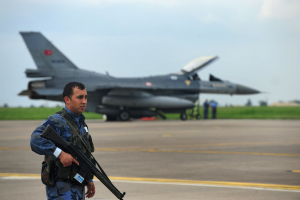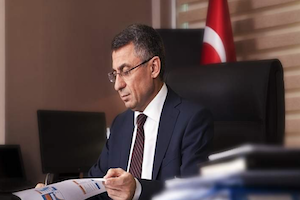Turkey Advances in Africa against Franco-Emirati-Egyptian Entente
By Michaël Tanchum
August 25, 2020
Turkey's expanded military presence in Libya has tilted the geopolitical game-board more in Ankara's favor vis-à-vis France and Egypt and their partner the United Arab Emirates. While motivating the strong backing Paris and Cairo are providing to Greece as it confronts Turkey in the eastern Mediterranean, Ankara's effort to extend Turkey's influence throughout Africa is driving a wider strategic competition between Turkey and France in the Sahel and likewise between Turkey and Egypt in the Horn of Africa. Ankara's advances in Niger in the Sahel and in Ethiopia in the Horn have raised the stakes for Turkey's rivals, pushing them into closer alignment, with the rivalry between Turkey and the Franco-Emirati-Egyptian entente defining one of Africa's main geopolitical fault lines.

Turkey Rattled by Weak Hand in Libya as Russia and Egypt Advance
By Micha’el Tanchum
November 27, 2018
On November 13, 2018, Turkish Vice President Fuat Oktay stormed out of an international conference on Libya organized in Palermo, Italy, complaining about “attempts to keep Turkey out of the process” to resolve the chaos in the divided North African nation. Later, the Turkish Vice President vowed that "Turkey will continue to display its righteous and firm stance with determination in Cyprus, Syria and Libya." Oktay's actions and remarks in fact reflect Turkey's weak hand in Libya. A future Turkish show of force in Libya cannot be ruled out, but ultimately the change in the balance of power in North Africa toward Russia and Egypt has inevitably undermined Turkey's already challenging strategic position in the Eastern Mediterranean.

Erdogan's North African Tour: Turkey's Regional Aspirations and Western Interests
By Veysel Ayhan (vol. 4, no. 18 of the Turkey Analyst)
The September 12-16 tour of Turkish Prime Minister Recep Tayyip Erdoğan to Egypt, Tunisia and Libya has occasioned the question what role Turkey can be expected to play in the Middle East and North Africa in the wake of the “Arab Spring”. Erdoğan is for good reason perceived as a leader who speaks for the “Arab street” on the international scene. But, concurrently – although perhaps less obviously – Turkey’s Middle Eastern and North African aspirations are increasingly in tune with Western interests as well.


